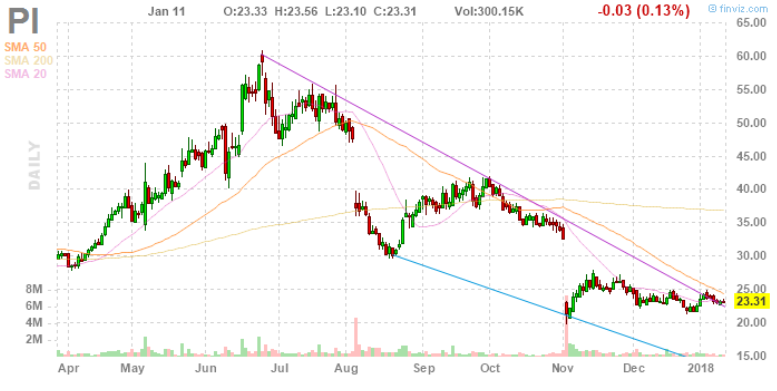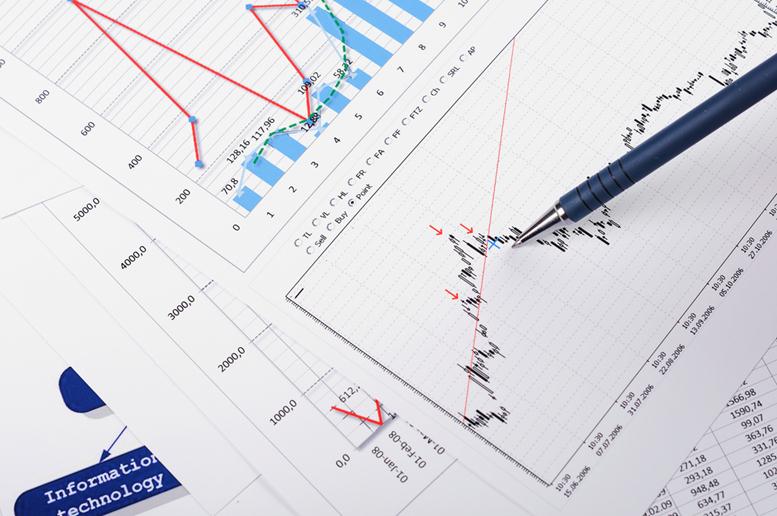Impinj Inc (NASDAQ:PI) offers ultra-high-frequency radio and identification solutions for identifying, authenticating and locating items. After hitting the highest level of $60 a share in mid-2017, its stock started losing momentum and posted massive losses after its second and third-quarter results for FY2017.
Impinj stock declined more than 20% in a single trading session after its revenue and earnings missed analyst’s expectations. Its stock is currently trading around $23 a share, substantially lower from the 52-weeks high $60 a share.

Source: finviz.com
Despite the massive selloff, PI stock looks overvalued trading around 4 times to book value and 3.6 times to sales, compared to the industry average of 2.7 and 1.9 times, respectively. The company’s returns on asset and equity ratios are lower than the industry averages.
Moreover, Impinj’s future fundamentals and financial numbers aren’t supporting its share price. In the latest quarter, the company missed earnings estimate by $0.05 per share. Its earnings also declined substantially in the latest quarter, compared the earlier year period.
In the latest quarter, its revenue increased only 5% over the past year period, while earnings declined to negative $0.23 per share compared to the profit of $0.01 per share.
Its CEO stated, “Our 2017 endpoint IC unit guidance remains unchanged at between 7.0 and 7.2 billion units. We see indicators of growing adoption for RAIN, and the Impinj platform, however, we expect to see a slight decrease in endpoint IC volumes in the second half of the year.”
Impinj also presented a bleak guidance for the final quarter of FY2017. The company expects its revenue in the range of $28.25M to $29.75M, when the consensus estimate stands around$35.42M. It is also likely to post a loss of $0.2 a share than the consensus estimate of $0.02 per share.
Overall, Impinj operates in a competitive electronic components industry and it should launch several innovative products to improve the market share. Therefore, investors should avoid buying this stock despite the massive selloff, as its share has limited upside considering higher valuations and a poor financial outlook.
Featured Image: facebook










